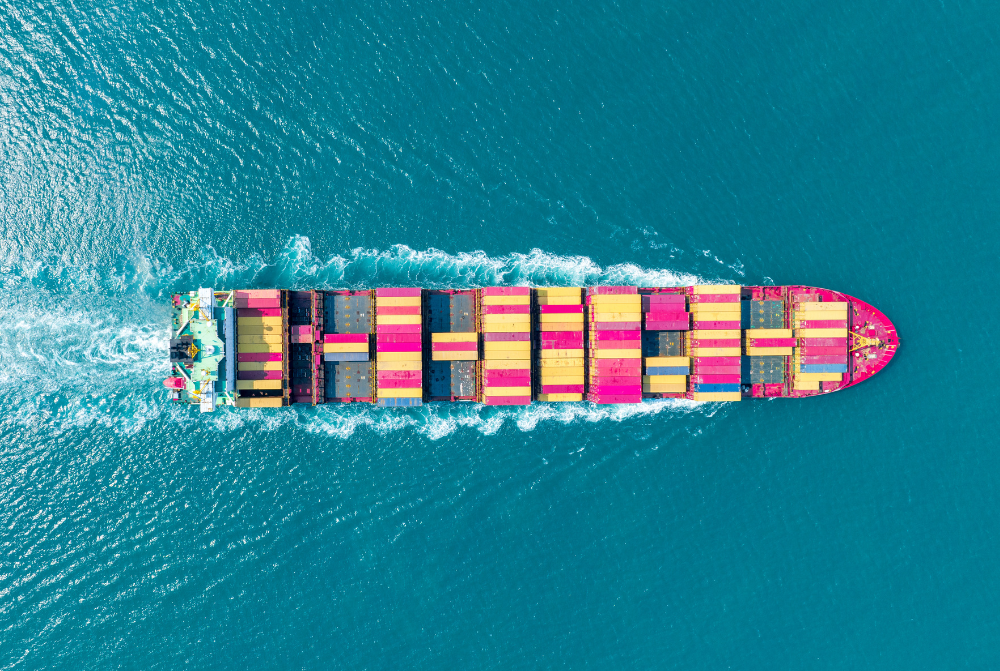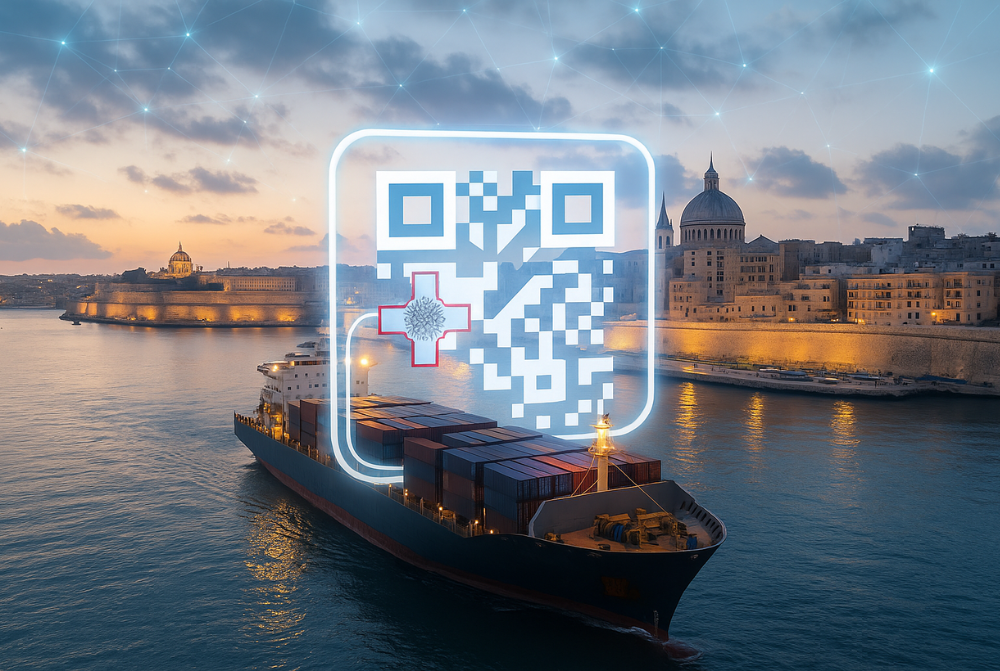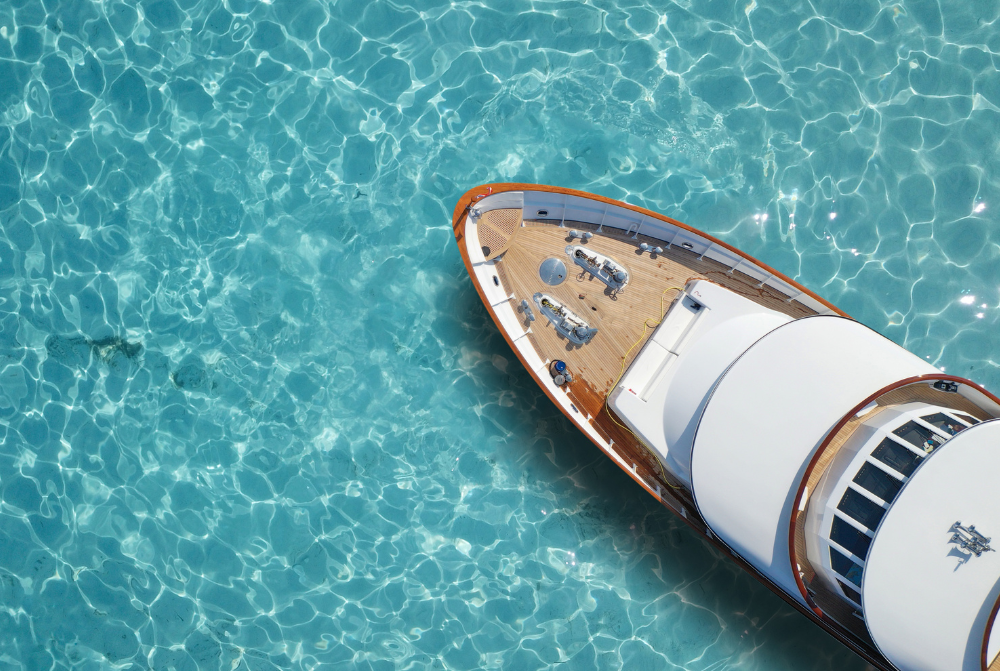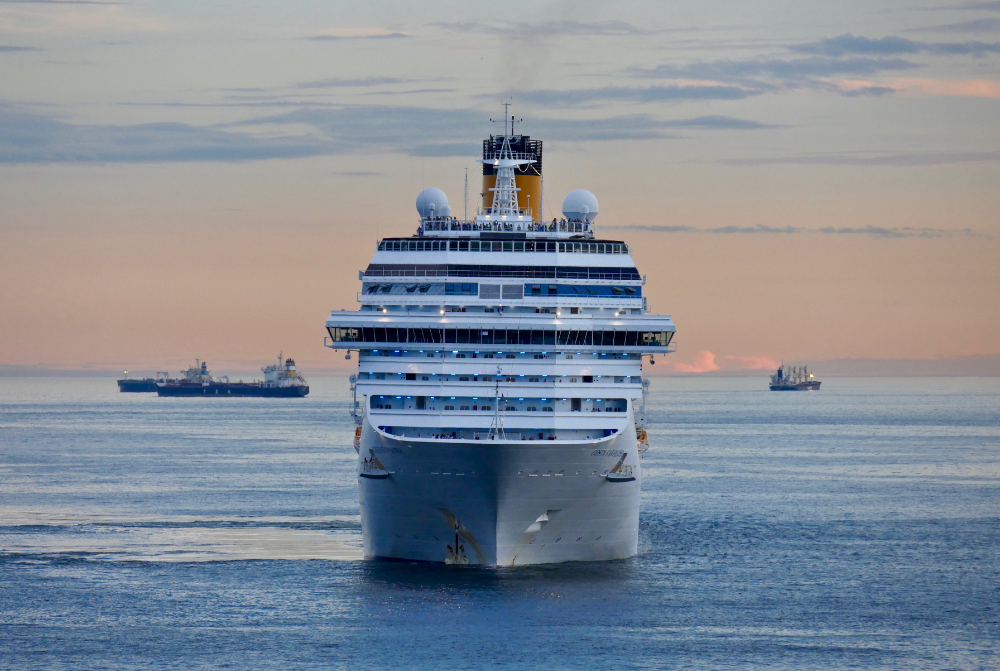Setting Sail for Success
Madeira (Portugal), with its strategic location and robust International Business Centre (MIBC), offers a compelling proposition for maritime companies looking to establish a strong presence in the European market. For those engaged in commodity transportation, such as fuel oil, LNG (or other), or even commercial yachting, Madeira provides a favourable business environment with a reputable tax framework approved by the EU Commission and streamlined registration processes.
As part of the MIBC, Portugal’s International Shipping Register of Madeira (MAR), established in 1989, has become a leading choice for vessel owners worldwide. It is whitelisted by both Paris MoU and Med MoU and is not considered a flag of convenience. Vessels registered with MAR fly the Portuguese flag and are subject to all international treaties signed by Portugal.
This article dives into the details you need to know for those interested in placing a commercial vessel (shipping or yacht activities) in a maritime company in Portugal, Madeira.
Establishing Your Maritime Company in Madeira
Setting up a maritime company in Portugal involves a clear, step-by-step process designed to facilitate smooth incorporation and operation. Companies are typically registered in the Portuguese island of Madeira due to the legal framework that exists to facilitate such structures – namely, the Madeira International Business Centre (MIBC). The regime benefits from EU approval as well as compliance with the OECD and BEPS international requirements.
The Incorporation Journey
The process begins with Name Approval from the National Company Registrar (RNPC). Once approved, the company undergoes Incorporation, typically as a Limited Liability Company (Lda), which requires a public deed. Following this, the business must be Registered and Published in the Official Journal of the Autonomous Region of Madeira (JORAM). You’ll then file a Declaration of Beginning of Activity and register with Social Security.
Using the MIBC Structure
A License Application is submitted through Sociedade de Desenvolvimento da Madeira (SDM), the official concessionaire of the MIBC. This application requires details such as the company name, address, business activity, investment value, and the number of jobs you plan to create.
If the owning entity is not incorporated in Madeira, a Local Representative must be nominated. Crucially, to qualify for MIBC tax benefits, your company must meet Substance Requirements, which generally include creating at least one non-crew member local job (who must be tax resident in Madeira) within six months and a minimum investment of €75,000 in assets within two years of licensing (if less than 6 jobs are created in Madeira).
Examples of the €75,000 Investment Substance Requirement
This minimum investment of €75,000, must be in tangible or intangible fixed assets and directly related to the company’s business activities. For a maritime company, these investments could include:
- Acquisition of a Vessel: An acquisition of a vessel that is to be operated by the Madeira company. This is particularly relevant given the nature of a maritime business, as the vessel is a primary productive asset. However, it is crucial that the vessel is genuinely used within the scope of the company’s MIBC-licensed activities and contributes to its revenue generation – and importantly, that the ship is at least used in Madeira.
- Acquisition of office premises in Madeira, to serve as the company’s operational base. This provides a physical presence and demonstrates real activity.
- Purchase of specialised maritime software and IT infrastructure for vessel management, logistics, charting, communication, or crew management. These should be developed or purchased in the island of Madeira.
- Investment in professional equipment necessary for the company’s operations, such as navigation systems, communication devices, or specialised tools for vessel maintenance or cargo handling.
- Acquisition of intellectual property rights directly relevant to the maritime business, such as patents for innovative shipping technologies or trademarks for proprietary services. These should be developed or purchased in the island of Madeira.
These investments must be identifiable, controlled by the company, and generate future economic benefits. It is important that they are productive or active in nature, rather than passive financial investments. Financial investments/portfolios do not qualify for the €75,000 investment requirement.
Tax Framework Overview
The MIBC operates under a credible and EU-backed regime (with full oversight), distinguishing it from other lower tax jurisdictions. It is fully accepted by the OECD as an on-shore, EU-compatible free trade zone and is not included on any international blacklist.
The reason MIBCs enjoy a lower tax rate is because the regime is recognised as a form of state aid which has been approved by the EU Commission. The regime is compliant with the principles of the OECD, BEPS and the European Tax Directives.
MIBC Tax Framework
Madeira’s MIBC offers the following tax framework for maritime companies:
- Corporate Income Tax (CIT): Enjoy a reduced corporate tax rate of 5% on taxable income from operations exclusively with non-resident Portuguese entities or other MIBC companies. Capital gains on the assets of the company are also taxed at 5%.
- Withholding Tax Exemption: Full exemption on dividend remittances to non-resident shareholders (provided they are not from “blacklisted” jurisdictions).
- Capital Gains Exemption: No tax on capital gains payments to shareholders on shares held who are not resident in “blacklisted” jurisdictions.
- Exemption on Other Payments: No withholding tax on worldwide payments of interest, royalties, and services.
- Participation Exemption: Eligibility for Portugal’s participation exemption regime on dividends and capital gains may apply.
- Crew Income Tax Exemption: Non-Portuguese crew members on commercial vessels and yachts registered in MAR are exempt from personal income tax in Portugal, given they have public or private insurance.
- Social Security for Crew: Non-Portuguese crew members may not be obliged to contribute to the Portuguese social security regime under certain conditions. For Portuguese nationals or residents, a total contribution rate of 2.7% (2.0% employer, 0.7% employee) applies.
- Double Taxation Treaties: Access to Portugal’s extensive network of international treaties for the avoidance of double taxation.
- Stamp Duty & Local Taxes: An 80% exemption on stamp duty, municipal property tax, property transfer tax, regional and municipal surtax, and other local taxes, provided the other parties are not Portuguese residents or are also MIBC companies.
- Investment Protection: Benefit from Portugal’s signed investment protection treaties (which, from experience, have been respected).
Navigating VAT for Vessels in Portugal: Key Advantages
As an EU member state, Portugal offers significant VAT benefits for both commercial shipping and yachting. These advantages are particularly relevant for companies operating under the Madeira International Business Centre (MIBC) framework. Understanding these rules is essential for optimising costs.
Understanding Your Vessel’s VAT Status
The VAT rules on a vessel’s acquisition or importation depend on its size and age.
- Vessels Under 7.5 Meters: No VAT is due on these vessels in Portugal, regardless of whether they are new or used.
- Vessels Over 7.5 Meters (New): VAT is due in Portugal if the vessel is considered “new.”
A vessel is classified as “new” if either of the following conditions is met:
- The sale occurs less than three months after its first use.
- The engine has fewer than 100 hours of use.
Vessels Over 7.5 Meters (Used): VAT is not due in Portugal if the vessel is not considered “new” based on the criteria above.
VAT Exemptions & Deductions
Genuine commercial vessels can benefit from significant VAT exemptions that drastically reduce operational costs.
| For Commercial Ships | For Commercial Yachts |
| The acquisition, importation, chartering, equipping, provisioning, repair, and maintenance of vessels primarily used for international commercial navigation (e.g., cargo ships, tankers) are generally exempt from VAT under EU law. | Commercial yachts genuinely engaged in charter activities benefit from a highly favourable VAT treatment in Portugal. This includes exemptions on acquisition and registration, as well as on the charter activities themselves. |
| Fuel and oil supplies for these vessels are also typically zero-rated for VAT purposes. | Furthermore, repair and maintenance, as well as fuel and oil supplies for commercial yachts, are also typically exempt from VAT. |
| The crucial criterion is the vessel’s genuine commercial use in international waters. | To qualify, the yacht must genuinely be engaged in a commercial charter activity at high sea and maintain appropriate charter agreements and operational records. |
Additional VAT Benefits
- VAT Deductibility & Reverse Charge: For companies registered for VAT in Portugal (including MIBC entities), the reverse charge mechanism can apply to intra-Community acquisitions. This means that when you purchase a used vessel from a VAT-registered supplier in another EU country, the buyer is responsible for accounting for the VAT, often resulting in a zero net payment for qualifying commercial operations. VAT on eligible operational expenses can also be reclaimed. This principle also applies to acquisitions from outside of Europe.
- No VAT on Export Sales: The sale of a vessel for export to a non-EU country is not subject to Portuguese VAT.
A Crucial Distinction: Commercial vs. Private Use
It is paramount to understand that these significant VAT advantages apply almost exclusively to genuine commercial operations. Private yachts or vessels used for leisure will generally be subject to the full Portuguese VAT rate (22% in Madeira) upon importation into the EU. The distinction between commercial and private use is rigorously enforced by tax authorities, and any misrepresentation could lead to severe penalties.
Capital Allowance Tax Deductions and Depreciation Methods
In Portugal, a company’s ability to depreciate tangible assets like yachts and ships for tax purposes is a key aspect of fiscal management – which may ensure optimisation of time value of money and better cash management that can otherwise be used in the business. The rules are designed to align with the asset’s use and its expected useful life.
Methods of Depreciation
Portuguese tax law allows companies to choose between two main depreciation methods:
- Straight-line method: This is the most common and simplest method. It spreads the cost of the asset evenly over its useful life, using rates that are generally consistent with standard industry practices.
- Declining-balance method: This method allows for higher depreciation in the early years of an asset’s life. It is calculated by applying a specific coefficient to the straight-line rate. This is particularly beneficial for assets that lose value quickly.
The coefficient for the declining-balance method depends on the asset’s useful life:
- Less than 5 years: 1.5
- 5 or 6 years: 2
- More than 6 years: 2.5
Registration Procedures
Refer below for the registration procedures for ships and yachts respectively.
Ship Registration
The International Shipping Register of Madeira (MAR) offers a competitive and reputable option for vessel registration, enjoying full EU status.
Eligibility and Ownership
Commercial vessels of all types are eligible for registration. While there are no direct age restrictions, MAR’s Technical Commission approves vessels case-by-case, considering age, performance, and the ISM manager’s performance.
Ownership does not require Portuguese citizenship. Entities can be based abroad, and it is not mandatory to incorporate a company in Madeira’s IBC to register a ship. However, a legal representative with sufficient powers must be nominated in Madeira if the owning entity is not locally incorporated.
Required Documentation
Registering a vessel necessitates comprehensive documentation, including:
- Power of Attorney for a local legal representative (if applicable).
- Identification of the applicant.
- Bill of Sale (original or certified copy).
- Certificate from the previous registry and Deletion Certificate (or proof of request).
- Permission from any mortgagees.
- Extensive technical documentation: Safety certificates, radio certificates, Ship Station License, class certificate, load line/pollution prevention certificates, tonnage certificate, manning certificate, compliance statements, plans, and crew documentation.
Surveys and Crew Nationality
Vessels must be classified by one of the officially recognized classification societies (e.g., ABS, LR, BV, DNV GL, RINA). For vessels over 15 years, an additional pre-registration survey might be requested.
For crew nationality, the captain and 30% of the crew must be European or nationals of Portuguese-speaking countries. Exemptions may apply for navigation and security reasons, with no limitations for other seafarers.
Operational and other Benefits of MAR
Even if the owning entity isn’t MIBC, vessels registered in MAR benefit from:
- Certification/Documentation: All international conventions ratified by Portugal apply to MAR-registered vessels. MAR is on the Whitelist of the Paris Memorandum of Understanding, signifying high quality. Certificates are issued in e-format.
- Mortgages: Mortgages can be regulated by any foreign law.
Commercial Yacht Registration
Madeira is also an attractive option for commercial yacht registration.
Eligibility and Documentation
Commercial yachts with a hull length between 7 and 50 meters and a maximum capacity of 12 passengers plus crew are eligible. Documentation is like commercial vessels but includes specific yacht requirements like Prototype Approval, Builder’s Certificate, Up-To-Date Survey Report, CE Type Examination Certificate, Station License, and coloured photos of the yacht.
Crew Nationality for Yachts
For commercial yachts, nationality requirements for crew members are often more flexible. While the general MAR rule for commercial vessels applies, waivers can be granted for legitimate justification.
Tax and Operational Benefits for Yachts
Commercial yachts registered under MAR enjoy:
- Crew Tax Benefits: Income tax exemption for crew members and reduced social charges (2.7%).
- Access: Full access to European and international waters.
Dixcart Portugal Lda
Dixcart Portugal have assisted various shipping companies over the years and have worked on various international shipping engagements. For more information, please contact us at: advice.portugal@dixcart.com.













